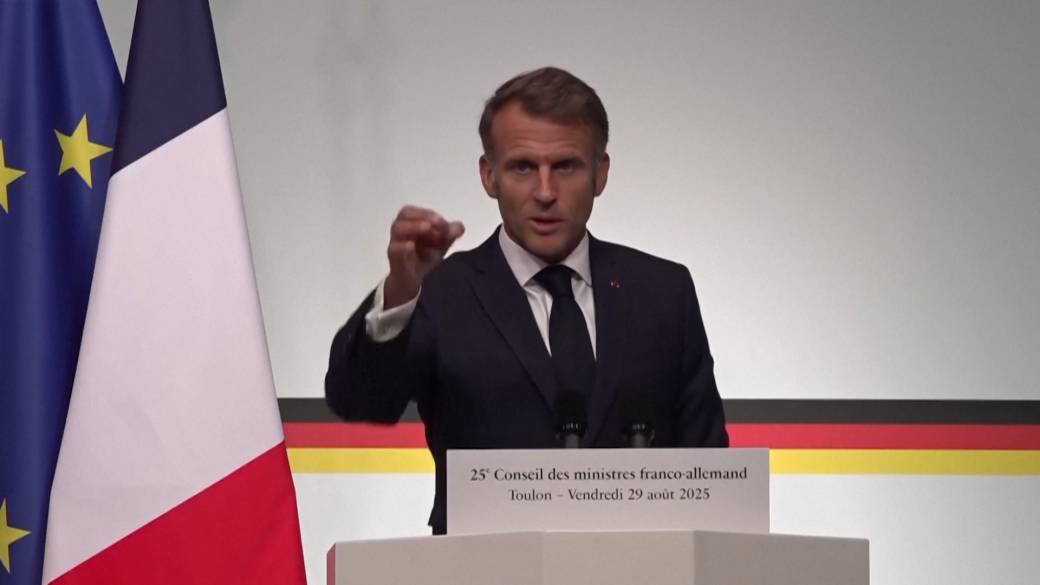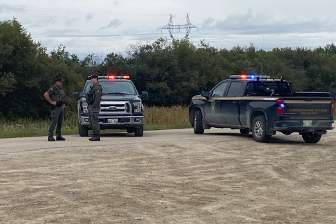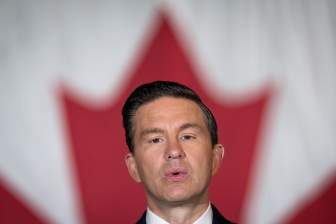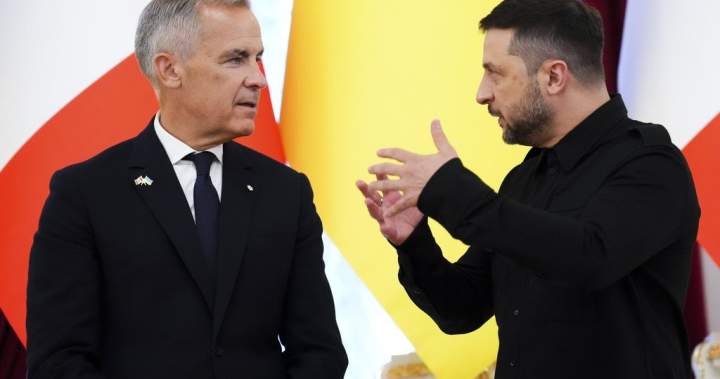Prime Minister Mark Carney’s office says he told Ukraine’s allies today that Canada is willing to deploy “direct and scalable military assistance” in a post-ceasefire Ukraine.

The Prime Minister’s Office says Carney took part virtually in a meeting of the pro-Ukraine “Coalition of the Willing.”
It says Carney affirmed Canada’s commitment to the coalition and its willingness to provide military support for a ceasefire.
Following today’s coalition meeting, French President Emmanuel Macron said 26 of Ukraine’s allies have pledged to deploy a “reassurance force” once the war with Russia ends with a peace agreement or ceasefire.
Macron said the countries committed to deploying troops in Ukraine, or maintaining a presence on land, at sea, or in the air.
Experts have said committing Canadian troops to Ukraine likely would mean shutting down Canada’s Latvia mission, which Carney recently announced would be extended to 2029.
Story continues below advertisement
Earlier Thursday, Macron and other European leaders met with Ukrainian President Volodymyr Zelenskyy and the the U.S. envoy for peace talks, Steve Witkoff, to discuss ways of ensuring long-term military support and continued American backing for Ukraine once the conflict ends. Zelenskyy’s office said he also held a closed-door meeting with Witkoff.
The European leaders — some of whom joined the meeting virtually — said Russia must now work toward ending the fighting, and the German government suggested European sanctions on Russia would increase if Moscow drags its feet. The European leaders also later spoke by phone with U.S. President Donald Trump.
More on Canada
More videos
Macron and British Prime Minister Keir Starmer, who lead the group, have insisted that any European “reassurance” force in Ukraine needs the backing of the United States.

Get breaking National news
For news impacting Canada and around the world, sign up for breaking news alerts delivered directly to you when they happen.
Starmer’s office said after the meeting that the British prime minister “emphasized that the group had an unbreakable pledge to Ukraine, with President Trump’s backing, and it was clear they now needed to go even further to apply pressure on (Russian president Vladimir) Putin to secure a cessation of hostilities.”
Starmer’s office also mentioned a decision from the coalition to supply long-range missiles to Ukraine “to further bolster the country’s supplies.”
Andriy Yermak, the Ukrainian president’s chief of staff, said Thursday after meeting Witkoff and other national security advisers that the security guarantees “must be strong and effective — in the air, at sea, on land and in cyberspace.”
Story continues below advertisement

1:16
Russia says France’s Macron ‘crossed the line’ by calling Putin ‘an ogre’
Trending Now
-

2 dead, including suspect, and multiple injuries after stabbing incident in Manitoba
-

End Canada’s temporary foreign worker program, Poilievre says
Some leaders took part in person in the Paris talks while others joined virtually. They spoke with Trump over the phone after the meeting.
“They expressed the hope that the United States would continue to make a substantial contribution to the joint efforts to support Ukraine, formulate security guarantees, and shape a productive diplomatic process,” German government spokesman Stefan Kornelius said in a statement.
Story continues below advertisement
German Chancellor Friedrich Merz, who attended virtually, laid out three “areas of action,” including working toward a summit that would include Ukrainian President Volodymyr Zelenskyy, and “a ceasefire must be agreed there.”
“If the Russian side continues to play for time, Europe will increase the pressure of sanctions to increase the chances of a diplomatic solution,” the statement said.
Positive signals
In a policy shift earlier this month, the U.S. sent positive signals over its readiness to support security guarantees for Ukraine that resemble NATO’s collective defense mandate, Zelenskyy said. It is unclear what that support would look like in practice. Ukraine is hoping for continued U.S. intelligence sharing and air support.
NATO Secretary-General Mark Rutte, who attended the meeting virtually, said that a broad coalition of nations is needed to support Ukraine’s defense against Russian aggression, but also to strengthen Europe to deter further military action by Moscow.
Citing European military and intelligence officials who have warned of Russian plans to strike other European countries, Rutte said that “we have to make sure that our deterrence is such that they will never try, knowing that our reaction will be devastating.”
Rutte also called for the world to “not be naive about Russia.”
“We know what Putin tries to do and and the evidence is there in Ukraine as we speak,” he said.
Story continues below advertisement
Meanwhile, in Ukraine, Russia fired 112 strike and decoy drones across the country overnight Thursday, according to Ukraine’s Air Force morning report. Air defenses intercepted or jammed 84 drones, the statement said.
Russia on Thursday announced that it was expelling an Estonian diplomat in a tit-for-tat move after Estonia declared a Russian diplomat persona non grata last month.
© 2025 The Canadian Press
